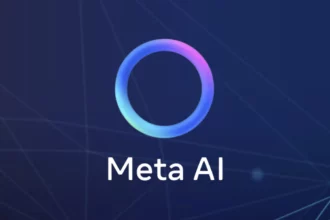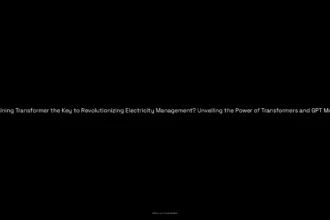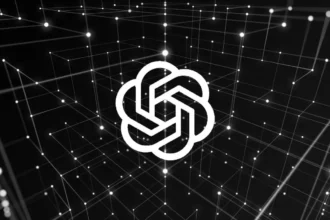Table of Contents
ToggleDo Colleges Check for ChatGPT in Application Essays?
Yes, colleges can and do check for ChatGPT use in application essays. Admissions officers have various methods and tools to detect whether an essay is written by AI like ChatGPT. While they may not catch every instance, many can identify AI-generated content through patterns and inconsistencies. Colleges also employ specialized software to aid in detection, aiming to uphold academic integrity and ensure essays genuinely reflect applicants’ voices.
How Admissions Officers Detect ChatGPT Essays
Admissions officers possess the skill to spot differences between human writing and AI-generated content. They rely on multiple clues:
- Inconsistencies in style: Abrupt changes in tone, vocabulary, or sentence structure can signal AI assistance.
- Lack of personal touch: AI essays often lack genuine emotional depth, unique perspectives, and self-reflection.
- Generic language: AI tends to produce formulaic and vague writing with limited imagery, which contrasts with authentic human expression.
Officers are experienced in evaluating thousands of essays and are alert to subtleties that suggest AI use.
Software Tools in AI Detection
Colleges increasingly use advanced AI detection software. These tools analyze essays based on:
- Linguistic patterns: Sentence composition, word choices, and grammatical structures fund patterns typical of AI writing.
- Writing style comparison: Essays are compared to applicants’ prior writing samples when available.
- Plagiarism checks: Cross-referencing essays against AI-generated databases and prior submissions.
- Contextual coherence: Spotting logical jumps, topic shifts, or unnatural transitions common in AI texts.
Examples include tools like isgpt and software developed by OpenAI to detect synthetic content. Ivy League schools notably invest in sophisticated AI detection mechanisms.
Limitations of Detection Methods
Despite advances, detection software and human judgment have limits. AI models evolve and produce increasingly sophisticated texts, making it harder to distinguish AI from human writing. False positives or negatives can occur, so admissions officers consider multiple factors instead of relying solely on software results.
Ethical and Practical Implications
Using ChatGPT for application essays raises serious ethical concerns. Admissions expect essays to represent the applicant’s own experiences and insights. An AI-generated essay risks misrepresenting the student’s abilities and could result in rejection if detected.
This practice can be seen as cheating both the admissions process and oneself. It undermines academic integrity, diminishes authentic self-expression, and can jeopardize future opportunities including acceptance, graduation, or career prospects.
Furthermore, AI essays often sound robotic, lack vivid imagery, and overuse first-person pronouns unnaturally. AI cannot reconstruct the nuanced personal stories or emotional depth that admissions officers seek.
Admissions Officers’ Role and Expertise
Admissions officers use their experience to evaluate the authenticity and originality of essays. They expect to connect with applicants through sincere narratives revealing personal growth and unique qualities. When essays show genuine reflection and distinctive viewpoints, they stand out positively.
Recommendations for Applicants
Students should avoid relying on AI tools like ChatGPT to write their application essays. The risks include detection, rejection, and loss of credibility.
Instead, applicants should:
- Focus on their personal experiences, values, and goals.
- Write in their own voice, highlighting unique stories and perspectives.
- Spend time reflecting and revising to ensure clarity and authenticity.
Admissions committees value sincerity and effort. Authentic essays increase the chances of making a meaningful impact.
Summary of Key Points
- Colleges have the ability to detect ChatGPT use through experienced admissions officers and specialized software.
- AI detection relies on analysis of writing style, linguistic patterns, coherence, and comparisons to applicants’ other work.
- Detection tools are helpful but not foolproof; human judgment remains essential.
- Using ChatGPT for essays is ethically problematic and risks application rejection.
- Authentic, personal essays reflecting genuine experiences resonate most with admissions officers.
- Applicants should prioritize honesty and self-expression over convenience.
Do Colleges Check for ChatGPT in Application Essays? Unlocking the Truth About AI and Admissions
Do colleges check for ChatGPT in application essays? Absolutely, yes—they do. While no detection method is flawless, admissions officers and software tools have become increasingly adept at spotting essays influenced or generated by AI language models like ChatGPT. Let’s unpack why and how, and what this means for you as an applicant.
The rise of AI language models such as ChatGPT has revolutionized the way we write. These tools can craft text that sounds impressively human, helping with everything from brainstorming to full essay drafts. For overwhelmed students facing looming deadlines, ChatGPT can seem like a tempting shortcut. But colleges are onto this trend—and it’s not as invisible as you might hope.
Admissions Officers: The Human Radar for AI
College admissions officers review thousands of applications annually. They are trained experts skilled at detecting authenticity in essays. These professionals look for genuine insights, unique voices, and personal stories that only true human experience can provide.
Essays that lack a clear personal thread, that feel formulaic or sudden shifts in style appear, often raise concerns. Admissions officers notice when an essay—no matter how polished—lacks the emotional depth and personal nuance typical of human writing. Remember, these officers have years of experience reading authentic student work and are familiar with common AI-generated patterns.
How Do Colleges Detect AI-Written Essays?
Besides the keen eyes of human officers, colleges increasingly use sophisticated AI detection software. These tools analyze linguistic patterns, sentence structure, vocabulary choice, and overall coherence. They compare the essay’s style with known human writing norms and the applicant’s prior writing samples, if available.
- They look for inconsistencies in tone and style. For example, abrupt changes in vocabulary or shifts from simple to overly complex sentence structures can be a red flag.
- AI tools tend to overuse certain phrases and possess a robotic rhythm or generic feel—admissions committees can spot that.
- Detection software also cross-checks essays against known AI-generated content and plagiarism databases.
Some Ivy League schools like Harvard and Yale have developed advanced systems specifically aimed at detecting AI-assisted writing in essays. OpenAI, the creator of ChatGPT, has even introduced its own AI-detection tool, underscoring the importance of integrity in academic writing.
Are These Detection Methods Perfect? Not Quite.
Detection isn’t infallible. False positives and negatives happen, especially as AI models evolve rapidly. Yet, no matter how subtle, an experienced human reviewer combined with technology significantly increases the likelihood that AI usage won’t go unnoticed.
Why Using ChatGPT for Essays Is Risky and Unethical
Students using ChatGPT to write application essays are essentially taking a double gamble. First, it cheats the admissions process by misrepresenting the applicant’s abilities. Second, it cheats the student out of self-discovery and personal growth.
Admissions committees value authenticity and expect essays to be products of the applicants’ own thoughts and reflections—not perfect robots. If detected, submission of AI-generated essays can lead to rejection or revocation of admission offers.
Would you want to base your entire future on text that’s someone else’s handiwork—or worse, a code’s output? That’s a deep question every applicant should consider.
ChatGPT Doesn’t Understand You—You Do.
Although ChatGPT can mimic styles and generate impressive prose, it cannot genuinely capture your unique experiences, emotions, or aspirations. It lacks the lived reality that makes your voice special. Your essay is a chance for admissions officers to learn about the nuances of your personality—not some generic, polished copy.
AI also has limitations like “hallucinations,” meaning it sometimes fabricates facts or makes errors. Reliance on such content risks including inaccuracies in essays, which can be damaging if discovered.
Ethical and Equity Considerations
The use of AI tools raises broader ethical questions. Relying on AI not only unfairly advantages some but deepens inequalities. Not every student has access to ChatGPT or similar technology, so those who do can gain an edge. Colleges strive for fairness, so relying heavily on AI might undermine that goal.
Moreover, the college admissions essay is a unique space where personal stories shine beyond mere data points like test scores or GPAs. It’s an opportunity to demonstrate growth, resilience, and personal insight—things AI cannot authentically reproduce.
What Should Applicants Do Instead?
Forget the shortcuts. The best college essays come from you—your voice, your experiences, your reflections. Admissions officers want to connect with the real you, warts and all.
- Reflect on your story and what makes your perspective unique.
- Write drafts yourself. Use AI tools only sparingly, perhaps for brainstorming or refining language—not for composing whole essays.
- Be authentic, even if your essay isn’t polished to perfection. Sincerity beats seamlessness every time.
- Ask trusted teachers or mentors to review your essay and provide feedback.
Embracing your own writing fosters personal growth and respects the integrity of the admissions process. Plus, when admissions officers sense your genuine voice, it leaves a lasting positive impression.
Can AI Help? Yes—but Wisely
Some admit AI can be a helpful assistant in the writing process—suggesting alternatives for phrasing, grammar corrections, or sparking ideas. But the core content must be your own. Think of ChatGPT as a writing coach, not a ghostwriter.
Using AI responsibly means leveraging it only to enhance your writing skills, preserving authenticity. Admissions teams typically encourage learning and developing writing abilities, not outsourcing your story to an algorithm.
In Summary: Do Colleges Check for ChatGPT in Essays? Absolutely.
- Admissions officers combine expertise with AI detection tools to identify AI-generated content.
- Essays produced solely by AI lack personal depth and voice, which admissions committees prize.
- Submitting an AI-written essay risks rejection or worse—damaging your academic reputation.
- Applying with honesty, personal insight, and authentic storytelling increases your chances of success.
In the end, your college essay isn’t just about getting in. It’s about telling your story, developing your voice, and stepping confidently into your future. So, before you hit “generate,” ask yourself: Do I want my future to depend on a robot? Or do I want it to depend on the one and only me?
Want More on Writing and AI Ethics in Admissions?
Check out our detailed post Can I Use ChatGPT for College Essays? for practical tips and expert advice. Dive into the HelloCollege blog to explore writing strategies, financial aid tips, and much more as you navigate your college journey.
At the end of the day, authenticity and effort matter most—let your unique voice be heard loud and clear.
Do colleges check if application essays were written using ChatGPT?
Yes. Admissions officers have skills and tools to spot essays generated by AI. They look for patterns and inconsistencies that suggest non-human writing.
How do admissions officers detect ChatGPT in essays?
- They notice shifts in tone and style.
- They identify a lack of personal insights.
- They spot phrases common in AI-generated text.
Are there software tools used to detect AI-written essays?
Yes. Colleges use software that analyzes writing style, grammar, and coherence. These tools compare essays to known AI patterns and an applicant’s previous work.
Can AI detection software guarantee that an essay was written by ChatGPT?
No. Detection tools are helpful but not foolproof. AI technology keeps evolving, so admissions officers combine software results with their judgment.
Why should students avoid using AI to write college essays?
Essays need to reflect your true self. Using AI risks appearing inauthentic and can hurt your chances. Admissions value personal stories and unique voices over polished but impersonal text.





